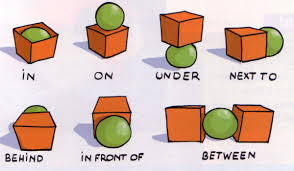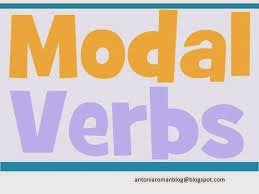Showing posts with label Grammar. Show all posts
Showing posts with label Grammar. Show all posts
Thursday, February 04, 2016
Monday, January 25, 2016
Wednesday, January 20, 2016
Monday, November 16, 2015
GET: Basic structures
GET: Basic structures
Get is one of the most common words in English, and is used in many different ways.
It is used in spoken and informal written English.
Get is one of the most common words in English, and is used in many different ways.
It is used in spoken and informal written English.
|
get + noun / pronoun
|
It usually means “receive”, “obtain”, “catch” or
something similar. The exact meaning depends on the object.
I got a
letter from Lucy this morning.
If I listen to loud music I get a headache.
I didn’t get
the joke. (=understand)
|
|
get + adjective
|
Before and adjective, get usually means “become”.
As you get
old, your memory gets work.
My feet are getting
cold.
|
|
get + preposition
|
Before a preposition, get nearly always refers to a
movement of some kind.
I often get
up at five o’clock.
Would you mind getting
off my foot?
In some idioms the meaning is different:
get to a
place (=arrive at)
get over
something (=recover from)
get on with
sb. (=have a good relationship with)
|
|
get + past participle
|
This structure often has a reflexive meaning, to
talk about things that we “do to ourselves”.
get washed,
get dressed, get lost, get engaged, get married / divorced.
|
|
get + -ing /infinitive
|
get + -ing (=star
…-ing) Very informal. Especially in the expressions: get moving, get going.
We’d better get
moving, it’s late.
get + infinitive
(=manage, have an opportunity, be allowed).
We didn’t get
to see her, she was too busy…
|
|
Causative:
get something done
|
get + object + past participle
It means “cause something to be done by somebody
else”. The past participle has a passive meaning.
I’m going to get
my hair cut this afternoon.
|
|
got and gotten
|
In British
English the past participle of get is got.
In American
English the past participle is gotten.
You have
gotten us in a lot of trouble.
|
Sunday, November 08, 2015
Sunday, November 01, 2015
Sunday, October 18, 2015
Monday, October 05, 2015
Wednesday, April 22, 2015
Adjectives, comparatives and superlatives
Adjectives, comparatives and superlatives
- Adjectives in English
- Forming adjectives
- Comparative and superlative sentences
- Comparative exercises
- Exercises
- Key
Sunday, February 22, 2015
Wednesday, November 26, 2014
Tuesday, October 07, 2014
Word Formation
You can access to an explanation about 'Word Translation' by clicking on the previous image.
Here, you could revise some videos related to the topic.
Friday, May 23, 2014
Wednesday, May 07, 2014
Friday, April 11, 2014
Sunday, March 30, 2014
Subscribe to:
Comments (Atom)


















